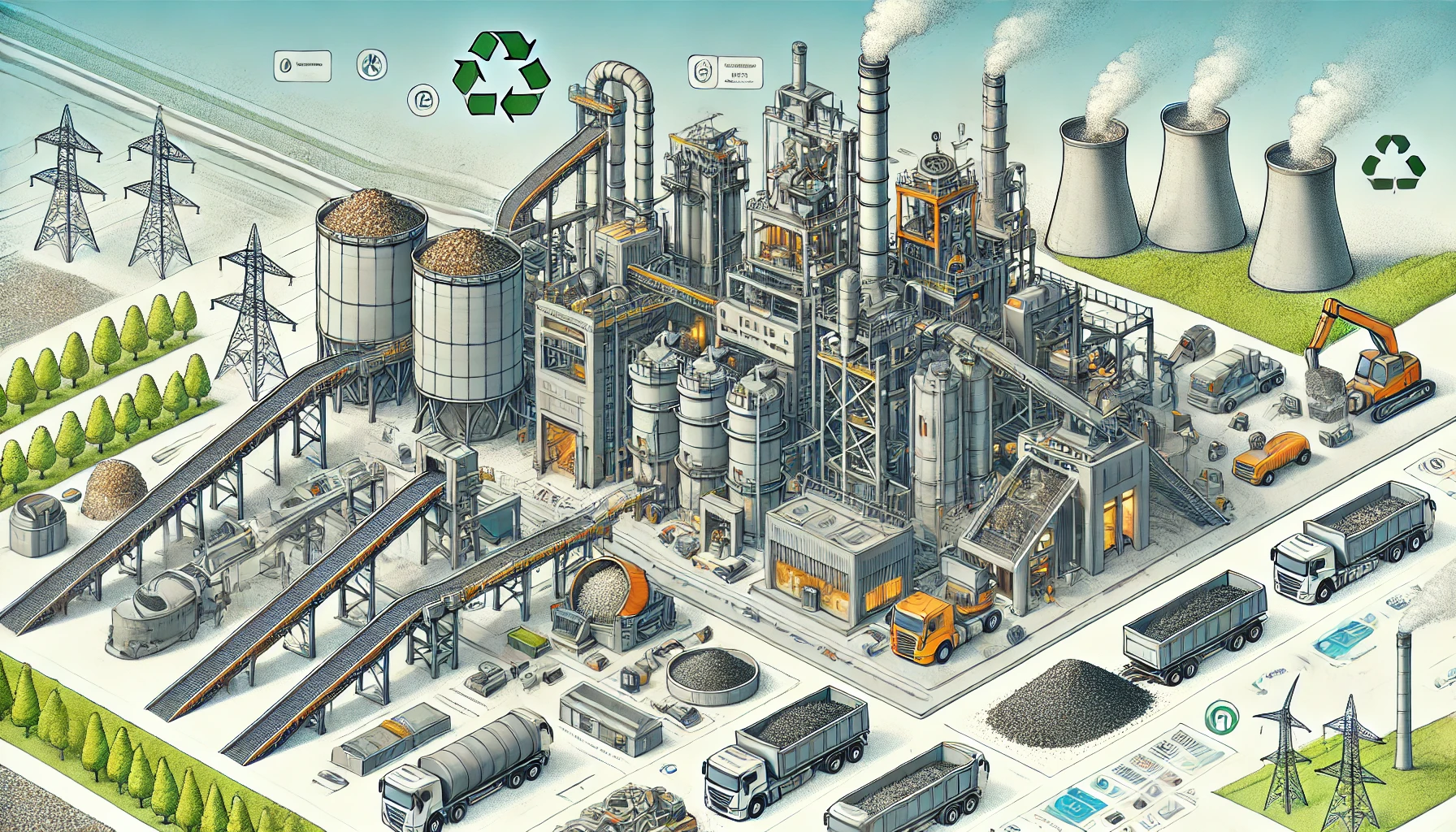In the heart of West Yorkshire, the Ferrybridge Multifuel Plant stands as a beacon of modern waste management and sustainable energy production. The plant employs a remarkable process known as Refuse-Derived Fuel (RDF) to convert everyday waste into usable energy, showcasing a practical solution to the growing waste crisis while contributing to the region’s power supply. A key player in this process is EFR Skips, which plays a crucial role in collecting and delivering waste to the plant.
EFR Skips: The First Step in the RDF Journey
EFR Skips is integral to the RDF process at Ferrybridge. The company specializes in waste collection and transportation, ensuring that waste materials are efficiently gathered from various sources. By partnering with EFR Skips, the Ferrybridge Multifuel Plant can rely on a steady and consistent supply of waste, which is essential for continuous energy production.
Understanding RDF: From Waste to Fuel
Refuse-Derived Fuel (RDF) is a type of fuel produced from various types of waste such as municipal solid waste (MSW), industrial waste, and commercial waste. At Ferrybridge, this process begins with the collection of waste materials, which are then sorted and processed to remove non-combustible components like metals and glass. The remaining material, predominantly composed of plastics, paper, and organic matter, is then shredded, dried, and compressed into uniform pellets or fluff, creating RDF.
The Journey of RDF at Ferrybridge Multifuel Plant
Once prepared, the RDF undergoes a transformation process that turns waste into valuable energy. Here’s a step-by-step look at how this occurs at the Ferrybridge Multifuel Plant, with EFR Skips playing a pivotal role:
- Waste Collection and Preparation: The journey starts with EFR Skips collecting waste from various sources, including households, businesses, and industrial sites. This waste is transported to the plant, where it undergoes an extensive sorting process. Non-combustible materials are extracted, leaving behind a mix of combustible waste.
- Shredding and Drying: The combustible waste is then shredded into smaller pieces to enhance its combustion properties. This shredded material is dried to reduce moisture content, which improves the efficiency of the fuel.
- Formation of RDF: The dried and shredded waste is compacted into pellets or fluff, forming the RDF. This form of fuel is easier to handle, store, and transport compared to raw waste.
- Combustion: The RDF is fed into the plant’s boiler, where it is combusted at high temperatures. This process generates heat, which is then used to produce steam.
- Energy Generation: The steam produced from the combustion of RDF drives turbines that generate electricity. This electricity is then fed into the national grid, providing power for homes and businesses across the region.
- Emission Control: The Ferrybridge Multifuel Plant is equipped with state-of-the-art emission control systems to ensure that the combustion process meets strict environmental standards. These systems capture and neutralize harmful pollutants, minimizing the plant’s environmental impact.
Environmental and Economic Benefits
The RDF process at Ferrybridge, supported by EFR Skips, not only helps in managing waste effectively but also contributes significantly to sustainable energy production. By diverting waste from landfills and converting it into energy, the plant reduces the reliance on fossil fuels and lowers greenhouse gas emissions. Additionally, the process supports local economies by creating jobs in waste management and energy production sectors.
Conclusion
The Ferrybridge Multifuel Plant exemplifies how innovative waste management techniques can be integrated with energy production to create a sustainable solution for the future. Through the transformation of waste into RDF and its subsequent conversion into energy, the plant, in partnership with EFR Skips, plays a crucial role in addressing environmental challenges while contributing to the energy needs of the community. This process underscores the potential of waste as a resource, paving the way for more sustainable and efficient waste management practices globally.
